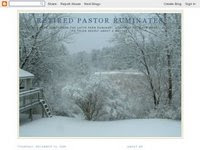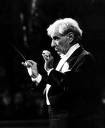A few years ago, when my son was at Pomona College in California, I flew out there for a parents’ weekend, and one day I was driving around in the LA sprawl and spotted an enormous Christian bookstore, so I stopped and parked and went in. And I had the strangest experience there, because I am both a Christian and one of the most bookish people on earth, and yet I didn’t see a single author I recognized in the store. Not one. There were Bibles there, of course, but not the black leather-bound ones I have, but ones in denim and calico, and with names like
The Soccer Mom’s Bible and
The Disgruntled Teen Bible (I made that up, but it wasn't a stretch from what I saw there.)
I wasn’t really expecting to find a lot of Karl Barth or P.T. Forsyth, but there wasn’t even any C. S. Lewis, Madeleine L’Engle, Philip Yancey, Tony Campolo, Eugene Peterson, or John Stott, card-carrying evangelicals all.
And it dawned on me that certain Christians live in a parallel intellectual universe to the one I live in. These were “Christian” books, and it got me to ruminating on whether the whole idea of a Christian book is a good one.
Remember the old joke that said: “Military justice is to justice what military music is to music.” Is it possible that “Christian books are to books what military music is to music?” I admit that I am a literary snob, and a theological one, too, but isn't there some standard of aesthetics that faithfulness requires of our art and literature, even if we disagree on just what that standard is?
I once got into an argument about music in church in which I argued that Christian worship demands good music, and my interlocutor said there is no such thing as bad or good music, just personal preference. I couldn’t disagree more. And it is not like I am wedded to one kind of music. I enjoy lots of kinds of music, but it has to be good music. Likewise I like all kinds of literature, but it has to be good.
I know I will probably get hate mail for saying this, but I didn’t like the Jan Karon “Mitford Series” because it seemed too preachy and contrived. My beloved Aunt Tia (now deceased so I can say this) was always pushing these books at me because they were “so Christian.” “You’ll like them,” she said, “because they describe a clergyman and his life with his congregation.” I guess it never occurred to her that being a pastor for thirty years I may have known all that I wanted to know about a clergyman and his congregation. And the clergyman in these books, while charming, seemed too good to be true, which is a bad thing in art and literature which demands, above all, truthfulness.
So I wonder if there can be such a thing as a Christian writer? There are writers who are Christian, and even deal in Christian themes, but I read them because they are good writers. I am thinking of Annie Dillard, Marilyne Robinson, and John Updike, to name but a few. And there are books that have Christian themes like John Irving's
A Prayer for Owen Meany and Graham Green's
The Power and the Glory, although I have never heard either of the authors described as a Christian writer. Frederick Buechner writes luminous non-fiction devotional and theological books, but his novels, like
The Book of Bebb, are never preachy or contrived.
What all these writers share is that they tell a story, and you don't feel like you are reading a religious tract. In their novels the themes of religion are woven into the fabric of life, as religion is itself in our lives; it's not a separate thing.
For example, I never thought of Charlotte Bronte’s Jane Eyre as a “Christian” novel, and yet when George Hunsinger asked our theology class to look for themes of “providence” running through the book it jumped out at me that Bronte, the parson’s daughter, was indeed spinning out a Christian theology. But what makes it worth reading is that it is so well written, just as Marilyne Robinson’s Home may have Christian themes running through it, but it is a book worth reading because it is a good book.
Good literature, like all good art, never descends to propaganda, even for a worthy cause such as Christ and his church. Let us be wary of Christian books.
































